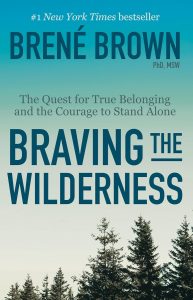Why Slowing Down Is An Important Part of Therapy
You might have noticed this in yourself alone, in counselling, or maybe with a friend/partner: In moments where you have a lot to share, it all comes flooding out. Fast. Sometimes you might wonder, if you took a breath between the words or how you got it all out so quickly?! But there it is. It can, at times, feel good. Like letting air out of a balloon so it isn’t over-inflated anymore. Other times, like when you’re sharing a very overwhelming experience, it might feel emotionally dysregulating.
Slowing down can be an important part of therapy. Why?
First, if it’s one of your first sessions with a new therapist, you might want to trust them but not quite be there. Maybe part of you simply feels you should be sharing all the details of life, or of that really hard experience. You anticipate it will feel better. Plus, isn’t that why you’re in therapy to start with? …to share all the things?
While this is a common assumption, if you’ve had a traumatic experience, remembering and sharing it all, all at once, will likely be too much for your nervous system. Your emotional parts might not differentiate between your being in the present day and your being back in the past. Meaning, if, as you are sharing part of you is so immersed in the traumatic experience, you might begin to (re)feel some of those very overwhelming emotions as you remember. Doing that all at once, if you’re sharing everything, can be extremely difficult and dangerous for you.
As well, it’s likely that you’re likely in therapy to work through difficult experiences and potentially mental and emotional wellness. If you share everything at the first appointment you might not go back. You might leave so dysregulated or exhausted, that it won’t seem worth it. Part of your therapist’s job is to help you navigate how much to share, and how much (and when) to slow down, while noticing how your physical self is doing.
Slowing down in therapy is an integral part of healing.
 Often individuals coming for counselling have experienced an event, relationship or are currently facing a situation where you might not feel a sense of agency, equality of power/influence. Meaning, you might not feel you have control, or a say. You might not feel safe (either emotionally, mentally, physically or otherwise) in this. Because of that, being able to slow down, being able to decide how much or how little of your story to share, is important.
Often individuals coming for counselling have experienced an event, relationship or are currently facing a situation where you might not feel a sense of agency, equality of power/influence. Meaning, you might not feel you have control, or a say. You might not feel safe (either emotionally, mentally, physically or otherwise) in this. Because of that, being able to slow down, being able to decide how much or how little of your story to share, is important.
Your physical body and somatic responses are so important to honour and hold space for. Perhaps your brain is telling you to share it all. However, your hands are shaking and your heart is racing. This is a sign you’re not doing amazing. It indicates part of you is possibly very overwhelmed. Possibly, your body is suggesting you need a break and a breath.
When you slow down in therapy, you give your body (and emotions/mind) an opportunity to really notice what’s going on. Small shifts in emotional regulation might be noticeable when you take a few deep breaths and get curious. You can notice how your body has been affected by an experience. You might notice heaviness, lightness, or anything in between. It’s possible you can notice the moment when your heart starts to race and you begin to re-experience really uncomfortable emotions. You and your therapist can explore this together. You can take some deep breaths, work to ground yourself and begin to feel present again.
This is healing and can feel empowering.
 Another reason that slowing down in therapy can be so important is that your body (or emotions) may be trying to communicate with you. Yet, because you are so used to speeding through your story, the uncomfortable stuff doesn’t get felt. That uncomfortable stuff might be sadness, anger, grief. It might be hurt by another person. It might even be joy.
Another reason that slowing down in therapy can be so important is that your body (or emotions) may be trying to communicate with you. Yet, because you are so used to speeding through your story, the uncomfortable stuff doesn’t get felt. That uncomfortable stuff might be sadness, anger, grief. It might be hurt by another person. It might even be joy.
{An aside, but important: Did you know that joy is the most vulnerable of emotions? Brene Brown shares this is one of my favourite books. These uncomfortable emotions (the ones mentioned or really any that you find harder to sit in) need space. Uncomfortable emotions need to be felt – even when that seems like the last thing you want to do.}
When you can begin to hold space for discomfort, you can begin to heal. You can begin to truly feel, to come to know yourself better, to possibly hold space for self-compassion…one day. (For some that’s very hard.) You can grow more curious.
If you aren’t slowing down, you will miss this. The hard and the good, the comfortable and the uncomfortable. When you can slow down in the context of therapy, you have the opportunity to remain grounded and present. And, while the present can be hard, it’s also healing. It’s safe. It’s part of the process.
You’re an emotional – feelings are part of your DNA.
Being able to hold space to identify, understand and possibly become curious about and then comfortable with your emotions is a big part of the healing process. This is something I would be honoured to walk through with you. Whether you’ve have a traumatic experience, or your noticing that daily life is getting to be too much. I’d love to connect with you. Please reach out!





